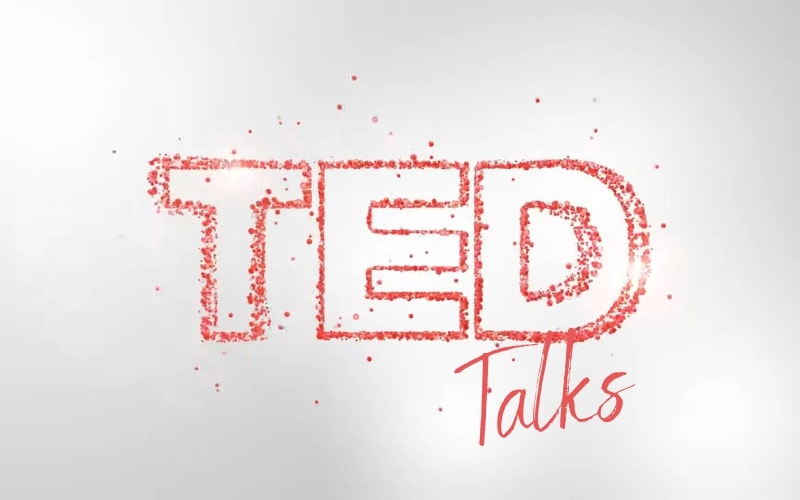TED Talks have long been a source of inspiration, knowledge, and innovation. For students, these presentations offer a unique blend of academic insights and real-world wisdom.
When I was a student, I used to watch these whenever I could. They helped me overcome many obstacles I encountered during my studies which is why I recommend them to everyone.
As we step into 2023, here are seven TED Talks that are essential viewing for all of you who might be dealing with the same difficulties. They span a variety of topics, ensuring there’s something for every student out there.
1. The Power of Vulnerability by Brené Brown
Brené Brown, a research professor at the University of Houston, dives deep into the human psyche to explore the essence of vulnerability. Her talk has resonated with millions, making them rethink their perceptions of strength and connection.
Why Vulnerability Matters?
Brown’s talk challenges the societal norms that often equate vulnerability with weakness. She presents compelling research that suggests vulnerability is the core of all emotions and feelings. For students, this means that by embracing vulnerability, they can unlock a deeper sense of creativity, innovation, and emotional connection.
The Connection to Authenticity
The speaker’s extensive research has shown that a strong sense of love and belonging is intrinsically linked to a feeling of self-worth. This talk encourages students to be authentic, to show up and let themselves be seen, and to understand that vulnerability is a path to courage, not a sign of weakness.
2. The Next 5000 Days of the Web by Kevin Kelly
Kevin Kelly, a visionary thinker and co-founder of Wired magazine, paints a picture of the future of the internet. His insights are crucial for students who will be at the forefront of the next digital revolution.
The Web’s Evolution
Kelly traces the journey of the internet from its inception to its current state and offers predictions about its future. He speaks of an internet that will be the world’s largest copy machine and emphasizes the importance of sharing and collaboration.
For students, understanding this evolution means being prepared for a future where the digital and physical worlds are seamlessly integrated.
Preparing for a Digital Future
Kelly’s talk is a clarion call for adaptability and foresight. He speaks of a future where the internet will be an extension of our consciousness. For students, this means developing a mindset that is open to rapid change and innovation.
3. The Danger of a Single Story by Chimamanda Ngozi Adichie
Nigerian author Chimamanda Ngozi Adichie delivers a powerful message about the dangers of understanding cultures and people through a single lens.
Breaking Stereotypes
Adichie uses personal anecdotes from her life to illustrate how easy it is to form misconceptions when exposed to a single story. For students, this talk is a lesson in empathy, understanding, and the importance of seeking diverse perspectives to truly understand the complexities of the world.
The Richness of Multiple Narratives
Adichie emphasizes that every culture, individual, and nation has multiple stories. By seeking out and understanding these diverse narratives, students can foster a more inclusive and holistic worldview.
4. Do Schools Kill Creativity? by Sir Ken Robinson
Sir Ken Robinson, an expert in education and creativity, challenges the traditional paradigms of education and advocates for a system that nurtures rather than stifles creativity.
Rethinking Education
Robinson critiques the current education system, suggesting it’s a relic of the industrial age. He believes that by placing undue emphasis on academic achievement, we’re sidelining talents and abilities that don’t fit into conventional molds. For students, this talk is a reminder to value all forms of intelligence and creativity.
The Future of Learning
Robinson’s vision for education is one where schools are hubs of creativity and exploration. He believes in cultivating an environment where mistakes are not just tolerated but celebrated as a part of the learning process. This perspective offers students a refreshing take on the true purpose of education.
5. How Great Leaders Inspire Action by Simon Sinek
Simon Sinek, a motivational speaker, and organizational consultant, introduces the concept of the “Golden Circle” and its pivotal role in leadership and innovation. His central thesis is that successful individuals and organizations operate from a clear sense of ‘why’.
This purpose-driven approach is contrasted with those who start with ‘what’ or ‘how’. For students, internalizing this concept can guide their academic and professional journeys, ensuring they’re driven by passion and purpose.
Inspiring Others
Sinek delves into the psychology of leadership, emphasizing that true leaders inspire action through a shared vision and belief. For students aspiring to leadership roles, this talk offers invaluable insights into building trust, fostering collaboration, and creating movements.
6. The Promise and Peril of Our Gene Editing Powers by Jennifer Doudna
Jennifer Doudna, one of the co-inventors of the CRISPR-Cas9 gene-editing technology, discusses the profound implications of this groundbreaking discovery.
The Potential of CRISPR
Doudna’s talk is a journey into the world of genetics, where the ability to edit genes offers possibilities like curing genetic diseases and reshaping the biological world. For students, especially those in the sciences, this talk offers a glimpse into the cutting-edge advancements that are reshaping our understanding of life.
Ethical Considerations
Doudna doesn’t shy away from the ethical dilemmas posed by gene editing. She discusses the potential consequences and moral considerations of editing the human germline. For students, this is a lesson in the responsibilities that come with scientific discovery.
7. The Art of Stillness by Pico Iyer
Pico Iyer, a renowned travel writer, explores the transformative power of stillness in an age of constant movement and distraction.
The Need for Quiet
Iyer discusses the paradox of modern life: the more ways we have to connect, the more many of us seem desperate to unplug. He speaks of the profound insights and creativity that can emerge from moments of stillness. For students, amidst the relentless pace of modern life, this talk is a reminder of the rejuvenating power of solitude and reflection.
Embracing Solitude
Iyer delves into the concept of inner exploration. He speaks of the profound clarity and understanding that can emerge from periods of solitude. For students, this talk is an invitation to cultivate a relationship with oneself, to find peace amidst chaos, and to understand the world by first understanding oneself.
Why should students watch these talks?
TED Talks are important for students for several reasons:
| Benefits | Explanation |
|---|---|
| Broadening Perspectives | Exposes students to diverse ideas and viewpoints outside their regular studies, fostering critical thinking. |
| Inspiration | Motivates students by showcasing individuals who have achieved remarkable feats and encouraging them to pursue their passions. |
| Learning from Experts | Provides insights from experts in various fields, offering knowledge beyond traditional classroom education. |
| Real-World Relevance | Connects academic concepts to practical applications, helping students see the relevance of their studies in global contexts. |
| Communication Skills | Demonstrates effective communication techniques, aiding students in presenting ideas clearly and engagingly. |
| Critical Thinking | Encourages questioning and consideration of alternative viewpoints, developing students’ critical thinking abilities. |
| Cultural Exposure | Offers insights into different cultures, societies, and ways of thinking from speakers worldwide. |
| Accessible Learning | Fits into busy schedules with short, accessible talks, providing quick learning without lengthy commitments. |
| Personal Growth | Explores personal development topics, such as resilience and mindfulness, aiding students’ self-improvement. |
| Enhancing Classroom Experience | Supplements traditional teaching methods, making classroom learning more interactive and engaging. |
| Future Skills | Discusses emerging trends, technologies, and skills relevant to future job markets, helping students prepare. |
| Global Awareness | Addresses global challenges, fostering awareness and inspiring potential action on issues like climate change and social justice. |
| Empathy and Understanding | Shares personal stories that cultivate empathy and understanding among students for a more compassionate society. |
| Networking | Enables connections with like-minded peers through attending TEDx events or engaging in the TED community online. |
FAQs:
Can students earn certificates or recognition for watching TED Talks?
While there’s no official certification, some educators might offer recognition for students who engage with TED Talks as part of their coursework.
Can they interact with the speakers?
Some TED speakers participate in Q&A sessions or engage with the audience through social media after their talks.
Are these suitable for all age groups of students?
Yes, TED Talks cover a diverse range of subjects and can be adapted to suit different age groups, from elementary school to university students.
Can students become TED speakers themselves?
Yes, students with unique perspectives and ideas can apply to become TED speakers through platforms like TEDx events.
Are TED Talks only in English?
No, these talks are available in multiple languages, making them accessible to students worldwide.
The Bottom Line
These TED Talks, each unique in its message and perspective, offer students a wealth of knowledge and inspiration. They serve as guideposts, helping students navigate the complexities of the modern world.
Whether you’re looking for personal growth, professional insights, or a fresh perspective, these talks are a treasure trove of wisdom. So why wait? Start watching these right now!

